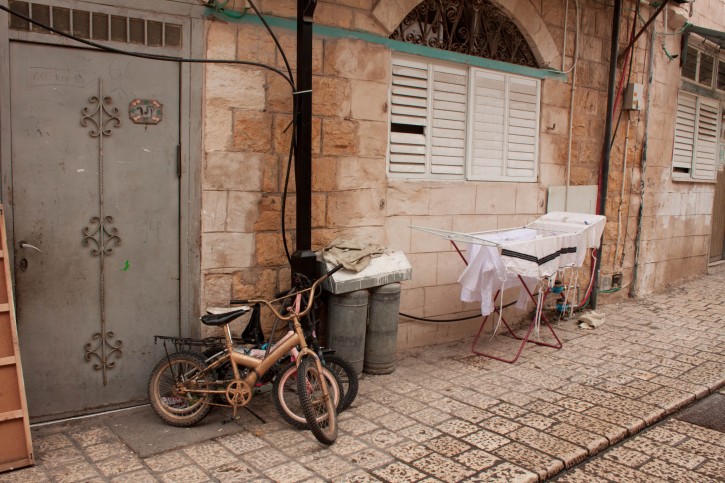It took more than a day to get from California to Israel, which only heightened the feeling of being far away. I was disoriented, as all travelers are, and we immediately boarded a bus that took us from Tel Aviv to Tiberias, a city I remembered for its feral cats (which are apparently everywhere in Israel). Last time, I had arrived by boat on the Sea of Galilee so it was difficult for me to retrace my steps in my memory. In fact, nowhere I went felt very familiar. The last time I was in that part of the world was half my life ago, which is nothing in the scheme of its history, but a lot in mine.
Every road sign has words in Hebrew and in Arabic and transliterated into the Roman alphabet. Some names, we were told, were changed when the land became Israel. Naming things, renaming things, makes them your own. Our tour guide would at times point out the window at the West Bank, indicating an invisible border. Someone mentioned Benedict Anderson’s idea of imagined communities. Many Arab settlers in the West Bank wear keys around their necks, which, given the opportunity, would unlock the homes they left behind. Is the West Bank an imagined community? Is Israel? It had always seemed to me like a failing experiment, but there are people who live there, who have always lived there, and who have nothing to do with my idea of what Israel is.
Our guide also pointed out a strange logic at work throughout Israel: the Sea of Galilee is the largest fresh water supply in a country with drought problems. Red lines mark the sea level until a certain depth, at which a black line indicates the lowest level the water can be drained to. Unless there’s a drought and they need water, in which case they repaint the black line red and continue draining. Similarly, the law prevents raising pigs for slaughter on the land, so they build platforms and keep the pigs elevated above the land. And at the Golan Heights there is a certain number of military vehicles allowed on either side of the border so the Israelis paint their black military license plates red, like the police. The Syrians, of course, do the same. These hypocrisies seem meaningful in a place as encumbered with meaning as Israel, but in reality there’s little difference between how they do things there and how we do them here.
Tzfat, January 2012







I’ll bet that juice was good…